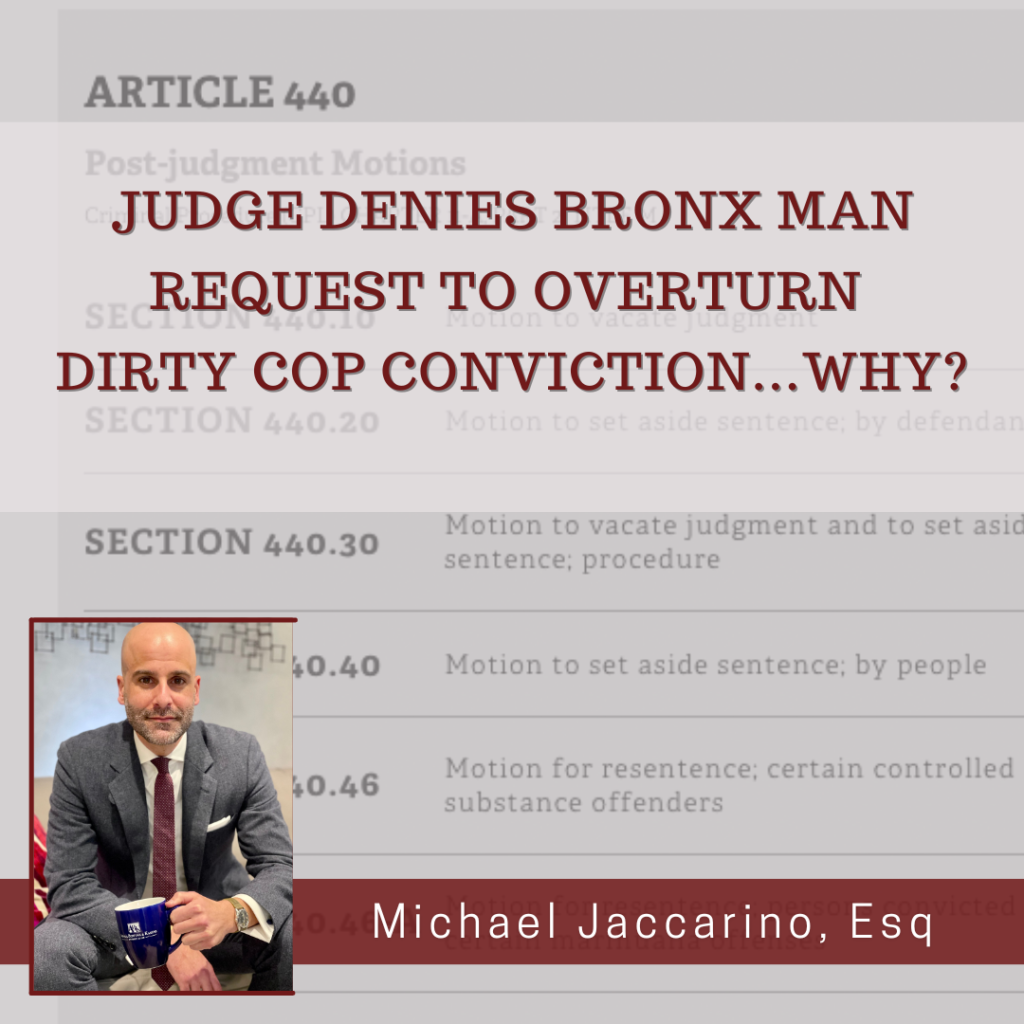ON BEHALF OF MICHAEL JACCARINO, ESQ. OF AIDALA, BERTUNA & KAMINS, PC POSTED IN BLOG ON MONDAY, September 26, 2022
Judge Denies Bronx Man Request to Overturn Dirty Cop Conviction...Why?
Judge Denies Bronx Man’s Request to Overturn Conviction Obtained with Testimony from “Corrupt Cop”
A man jailed on a murder charge nearly 20 years ago lost his bid for freedom last week after a Bronx judge refused to overturn his conviction, despite accusations that the homicide detective who busted him had a history of misconduct.
Terel Overton was sent back to prison to resume the 22 years-to-life sentence he received in 2003 for the 2001 shooting death of Timothy Parker, a murder he has long said he did not commit. Bronx Judge Guy Mitchell denied a bid to vacate Overton’s conviction, saying his motion did not meet the necessary criteria. Much of the prosecution’s case hinged on a confession that Overton later said was coerced by Det. Michael Donnelly. Overton was 18 at the time. Donnelly is now the subject of lawsuits claiming that he coerced false statements from witnesses and failed to follow up on leads and hid evidence. The allegations against Donnelly and other cops have already led judges to vacate convictions of other inmates. Many of these cases are very troubling, and merit reversal. But, what does a defendant have to show to get this type of relief? Generally, these motions come in the form of a 440 Motion, and subsequent hearing.
So, what is a 440 motion?
A 440 motion is a collateral attack on a judgment of conviction, and it challenges the validity of the conviction itself. In other words, it is a post-conviction motion to vacate a criminal conviction, pursuant to Article 440 of the New York Criminal Procedure Law. There are several grounds upon which such a motion may be filed, including allegations of the presentation of false evidence at trial, prosecutorial misconduct, ineffective assistance at trial, or newly discovered evidence that shows the defendant’s innocence.
A 440 is different than an appeal. It is unclear exactly what the nature of the evidence was in the above-mentioned case. However, in cases of newly discovered evidence, the evidence must be powerful enough to make it more likely that if the jury would have known about it, the result would have been different.
The criminal defense lawyers have decades of experience in the area of post-conviction practice, and we are available to discuss your case anytime. Jut because someone you know has been convicted, it does not mean that the case is over. In September, the Brooklyn District Attorney’s Office asked a judge to toss hundreds of convictions that relied on testimony from dirty officers. So, despite a conviction, the fight goes on.
At Aidala, Bertuna & Kamins, our criminal defense lawyers have a wealth of experience in both Federal and State Court, and have defended some of the most high profile cases in the country. Contact us today if you or someone you know is facing criminal charges of any kind.
Michael Jaccarino, and the criminal defense attorneys at Aidala, Bertuna & Kamins, PC, have decades of experience.
For more information or more fact-specific discussions, call our office and ask to speak with attorney Michael Jaccarino.



